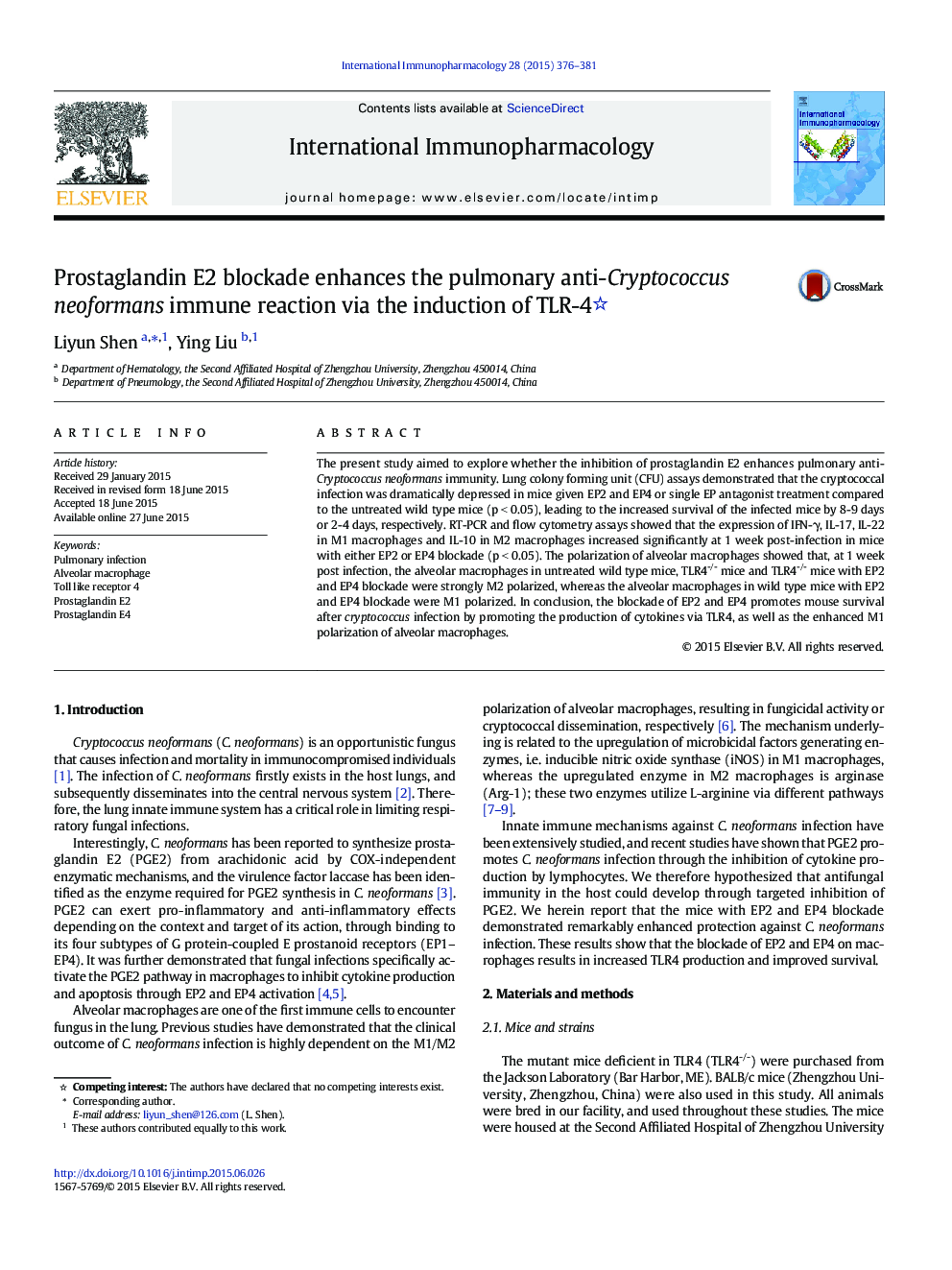| Article ID | Journal | Published Year | Pages | File Type |
|---|---|---|---|---|
| 2540468 | International Immunopharmacology | 2015 | 6 Pages |
•Prostaglandin E2 blockade enhances pulmonary anti-Cryptococcus neoformans immune reaction via induction of TLR-4.•Prostaglandin E2 blockade affects the polarization of alveolar macrophages
The present study aimed to explore whether the inhibition of prostaglandin E2 enhances pulmonary anti-Cryptococcus neoformans immunity. Lung colony forming unit (CFU) assays demonstrated that the cryptococcal infection was dramatically depressed in mice given EP2 and EP4 or single EP antagonist treatment compared to the untreated wild type mice (p < 0.05), leading to the increased survival of the infected mice by 8-9 days or 2-4 days, respectively. RT-PCR and flow cytometry assays showed that the expression of IFN-γ, IL-17, IL-22 in M1 macrophages and IL-10 in M2 macrophages increased significantly at 1 week post-infection in mice with either EP2 or EP4 blockade (p < 0.05). The polarization of alveolar macrophages showed that, at 1 week post infection, the alveolar macrophages in untreated wild type mice, TLR4-/- mice and TLR4-/- mice with EP2 and EP4 blockade were strongly M2 polarized, whereas the alveolar macrophages in wild type mice with EP2 and EP4 blockade were M1 polarized. In conclusion, the blockade of EP2 and EP4 promotes mouse survival after cryptococcus infection by promoting the production of cytokines via TLR4, as well as the enhanced M1 polarization of alveolar macrophages.
